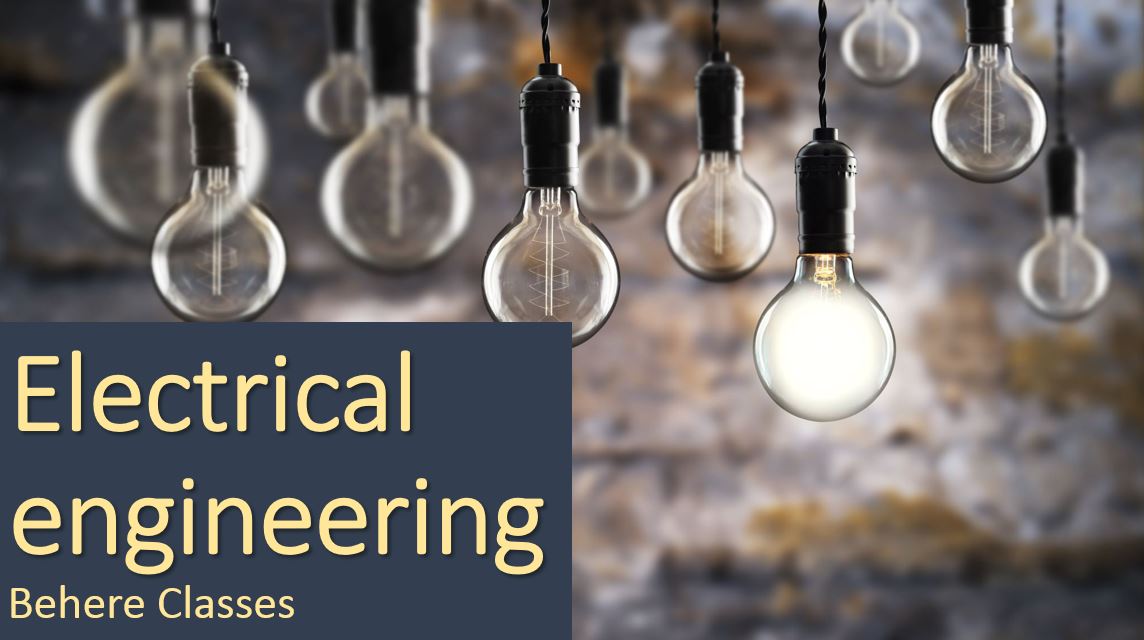Electrical Engineering
It encompasses the study and application of electricity, electronics, and electromagnetism, powering modern infrastructure and technologies. Electrical circuits, governed by principles like Ohm's Law, facilitate electricity flow through components like resistors and capacitors. Electrical engineers innovate across industries, designing systems for machinery, communication, healthcare, and energy. They ensure reliability and efficiency while driving technological advancements. For instance, in the development of faster switches, engineers leverage electricity's properties to enhance efficiency and drive innovation, ultimately shaping our world and improving lives globally.
Duration and Course Level:
Courses: BTech, BE, MTech, PhD, Integrated BTechMTech
Eligibility:
Diploma: Class 10
UG: Class 12 with entrance examination
PG: BTech + GATE
Doctorate: MTech
Duration:
Diploma: 3 years
UG: 4 years
PG: 2 years
PhD: 36 years
Entrance Exams: VITEEE, JEE Main, GATE, SRMJEEE, CUCET
Salary Package:
Electrical Engineering Salary Per Month (India):
1. Freshers (0-2 years of experience):
- Monthly Salary Range: INR 20, 000 - 40, 000
2. Mid-Level Engineers (3-5 years of experience):
- Monthly Salary Range: INR 40, 000 - 80, 000
3. Experienced Engineers (6+ years of experience):
- Monthly Salary Range: INR 80, 000 - 1.5 Lakh or more
Electrical Engineering Salary Based on Experience:
1. Fresher/Entry-Level:
- Avg. Annual Salary: INR 3.5 - 8 Lakh
2. Mid-Level (3 to 5 years of experience):
- Avg. Annual Salary: Up to INR 7.2 Lakh
3. Experienced (10+ years of experience):
- Avg. Annual Salary: Up to INR 17 Lakh
Electrical Engineering Salaries in Major Metro Cities:
1. Mumbai, Maharashtra:
- Freshers: INR 2.2 - 3.9 LPA
- MidLevel: INR 3.1 - 8.9 LPA
- Experienced: Average from INR 15 LPA
2. Bangalore, Karnataka:
- Freshers: INR 2.4 - 5 LPA
- MidLevel: INR 3.2 - 7 LPA
- Experienced: Average from INR 13.8 LPA
3. New Delhi:
- Freshers: INR 2.4 - 4.2 LPA
- MidLevel: INR 3.4 - 7.6 LPA
- Experienced: INR 18.5+ LPA
4. Chennai, Tamil Nadu:
- Freshers: INR 2 - 4.3 LPA
- MidLevel: INR 2.9 - 7.6 LPA
- Experienced: Average from INR 14 LPA
5. Pune, Maharashtra:
- Freshers: INR 2.1 - 3.9 LPA
- MidLevel: INR 3 - 7 LPA
- Experienced: Average from INR 12 LPA
6. Hyderabad, Telangana:
- Freshers: INR 2.2 - 4.2 LPA
- MidLevel: INR 3 - 6.4 LPA
- Experienced: Average from INR 12.2 LPA
Job Roles:
1. Analog Design Engineer
2. Bioelectronics Engineer
3. Computer Aided Design Engineer
4. Consulting Engineer
5. Control Systems Engineer
6. Device Design Engineer
7. Digital Communications Engineer
8. Digital Systems Engineer
9. Electrical Engineer
10. Engineering Management Professional
11. Fiber Optics Engineer
12. Field Services Engineer
13. Integrated Circuit Design Engineer
14. Power & Energy Systems Engineer
15. Process Engineer
16. Production Engineer
17. Quality Control Engineer
18. Research & Development Engineer
19. Sales & Marketing Professional
20. Signal Processing Engineer
21. Wireless Systems Engineer
These roles offer diverse career paths within electrical engineering, catering to different interests and expertise.
Education and Training Requirements:
1. Diploma: Class 10th completion with 50% marks, Diploma Entrance Exam.
2. Undergraduate (BTech): Class 12 pass with PCM/PCMB and 50% marks, or equivalent.
3. Postgraduate (MTech): BTech in Electrical Engineering required.
4. Doctorate: Completion of MTech in Electrical Engineering.
Innovation & Creativity:
In electrical engineering, creativity fuels transformative solutions for renewable energy and smart grids. Engineers pioneer circuit designs and energy-efficient systems, solving complex problems and advancing technology through collaboration and innovation.
Industrial Overview:
Electrical engineering drives innovation across industries like transportation, healthcare, and robotics. With a surge in technology, demand for electrical engineers is high worldwide. Entry typically requires a bachelor's degree from an accredited institution. Career paths include roles such as electronic engineer, power engineer, and telecommunications engineer. Essential skills include circuit design, troubleshooting, and programming, alongside problem-solving and communication. Electrical engineers play a crucial role in advancing technology and addressing society's electrical needs.
Industry/Field Future:
The future of electrical engineering looks promising with advancements in sectors like electric vehicles, smart grids, robotics, and consumer electronics. These areas are projected to experience annual growth rates of 10% or more over the next decade, creating ample opportunities for electrical engineers. Students in engineering programs are advised to explore these emerging fields to align their studies and career goals with the evolving landscape of electrical engineering.

